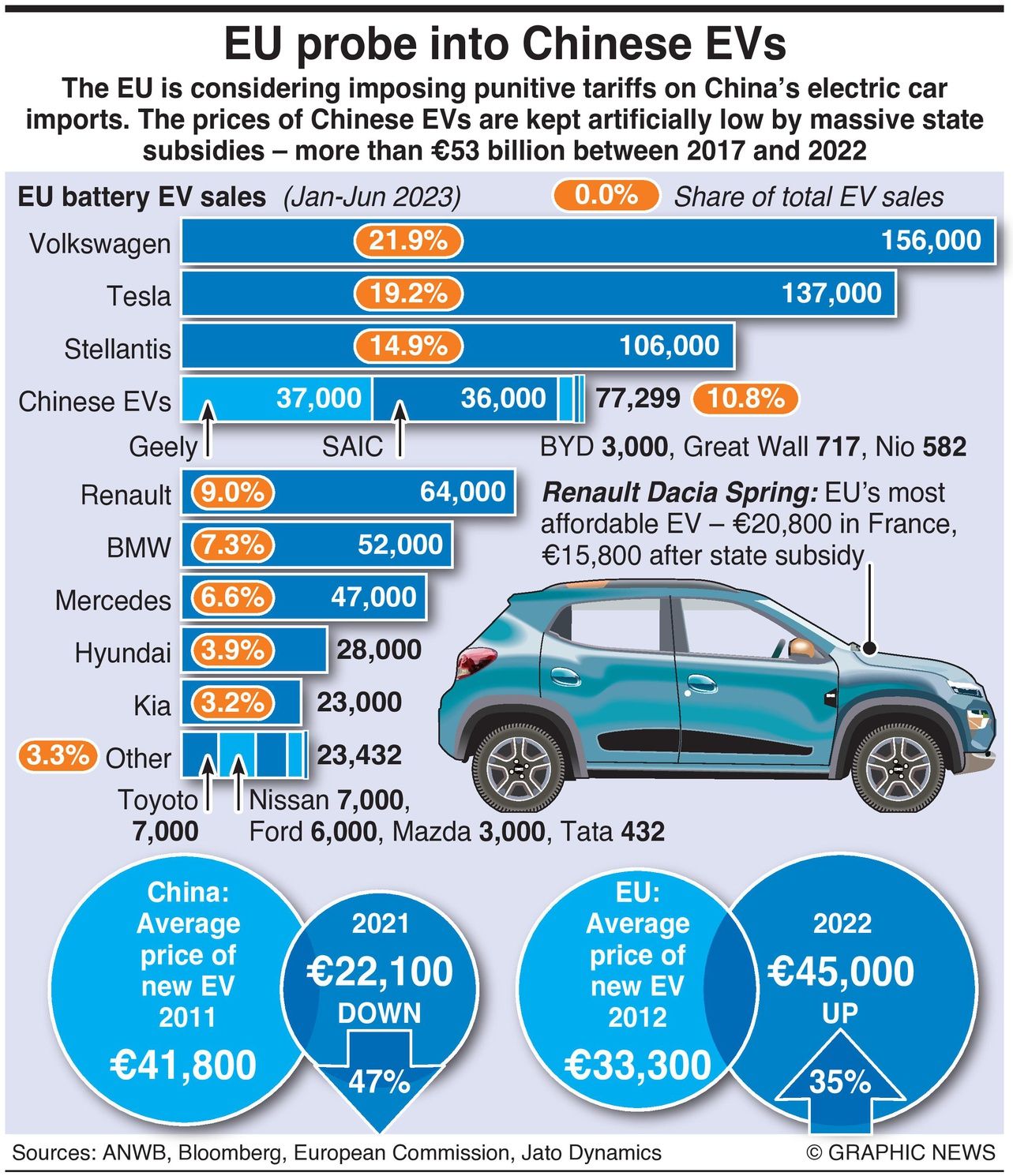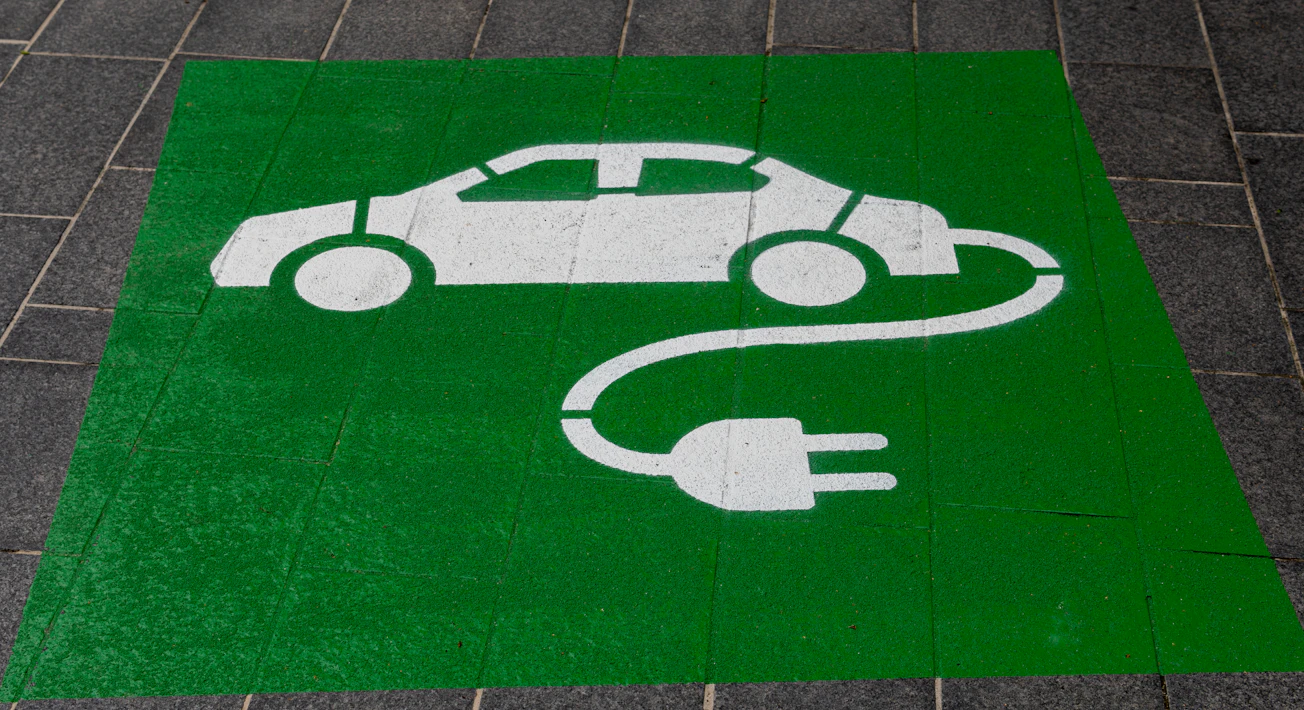The EU is considering imposing punitive tariffs on China’s electric car imports. The prices of Chinese EVs are kept artificially low by massive state subsidies – more than €53 billion between 2017 and 2022.

According to automotive data analysts Jato Dynamics, the average price of a new electric car in China since 2011 has fallen from €41,800 to €22,100 in 2021 – a drop of 47 percent. Meanwhile, the average price in the European Union has increased from €33,300 in 2012 to above €45,000 last year – a rise of 35 percent.
A survey conducted in ten European countries by the Royal Dutch Touring Club, ANWB, found the price consumers are willing to pay for a new EV fell to €29,000 in 2022 -- a gap of about €16,000. This year, the purchase subsidy in the Netherlands has fallen by €600 to €2,900. On top of cost considerations, Chinese EV makers have other advantages.
In addition, a Chinese electric car sold in Europe currently attracts a 10 percent tariff. A European EV exported to China pays between 15 and 25 percent.
“They have the best battery technology and have locked up a lot of the important ingredients in the battery like the cobalt processing and the lithium-ion,” explained Ross Douglas, founder and CEO of Autonomy Paris, an urban mobility community.
The EU investigation will examine unfair subsidies, from raw materials and battery prices to cheap lending or land rents.









